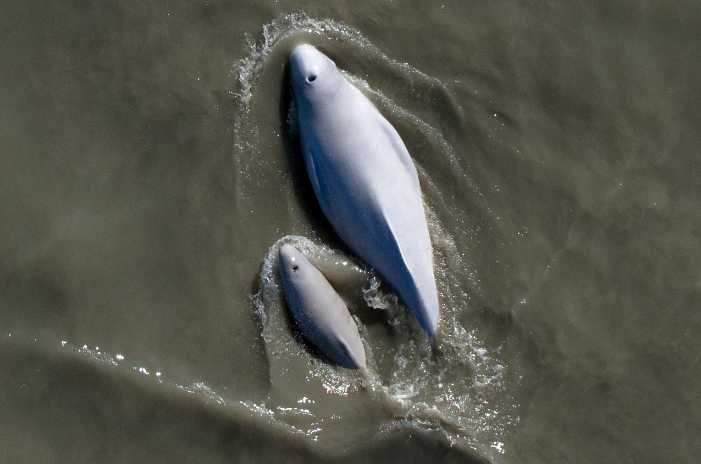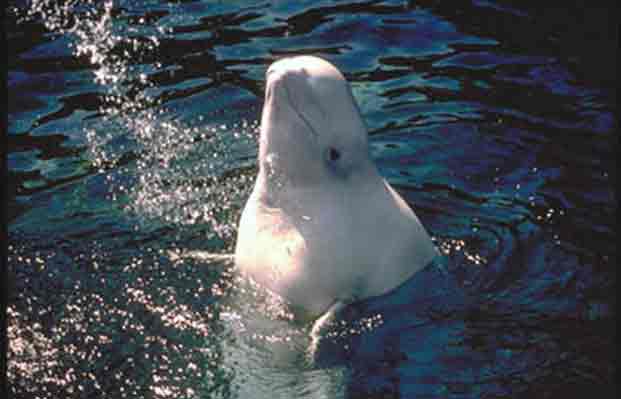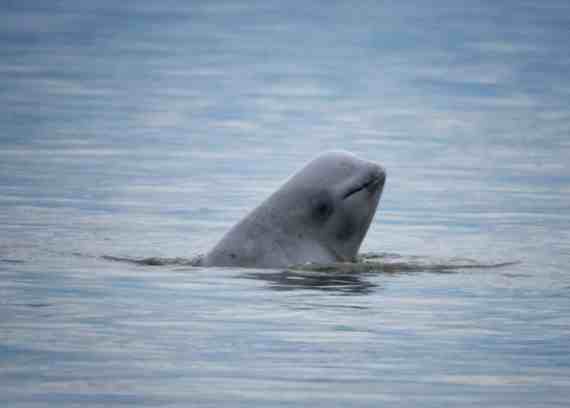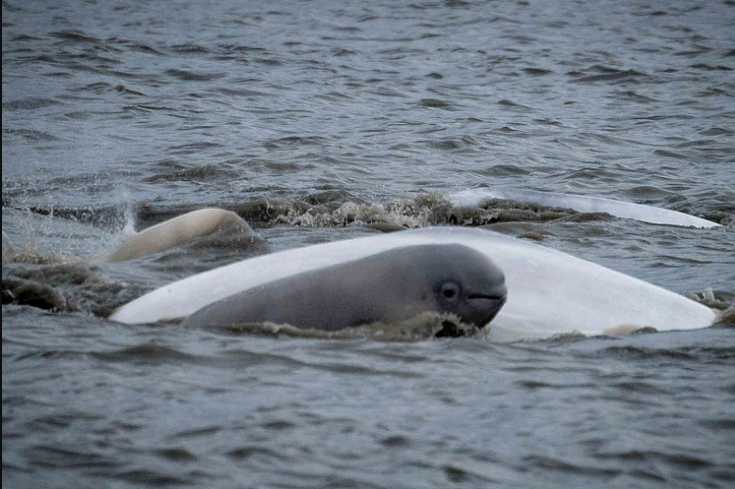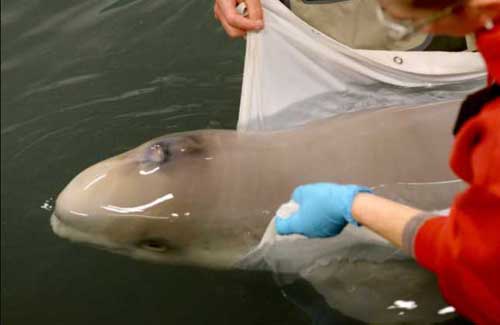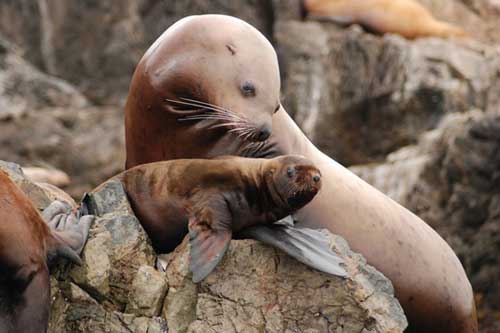Following a number of public engagement efforts, NOAA Fisheries today announced it is denying the Georgia Aquarium’s request for a permit to import 18 beluga whales from Russia for public display in the United States. NOAA Fisheries based the decision on requirements of the Marine Mammal Protection Act (MMPA).
The MMPA allows marine mammals to be removed from the wild or imported for the purpose of public display, and provides a process for issuing permits. This is the first application for a permit to import recently caught wild marine mammals in more than 20 years.
“The Georgia Aquarium clearly worked hard to follow the required process and submit a thorough application, and we appreciate their patience and cooperation as we carefully considered this case,” said Sam Rauch, acting assistant NOAA administrator for NOAA Fisheries. “However, under the strict criteria of the law, we were unable to determine if the import of these belugas, combined with the active capture operation in Russia and other human activities, would have an adverse impact on this stock of wild beluga whales.”
After careful review, NOAA Fisheries concluded that the application did not meet several of the MMPA permit criteria. NOAA Fisheries denied the permit application because:
- NOAA Fisheries is unable to determine whether or not the proposed importation, by itself or in combination with other activities, would have a significant adverse impact on the Sakhalin-Amur beluga whale stock, the population that these whales are taken from;
- NOAA Fisheries determined that the requested import will likely result in the taking of marine mammals beyond those authorized by the permit;
- NOAA Fisheries determined that five of the beluga whales proposed for import, estimated to be approximately 1½ years old at the time of capture, were potentially still nursing and not yet independent.
 The Aquarium sought to import the whales from Utrish Marine Mammal Research Station on Russia’s Black Sea Coast for public display at its own facility in Atlanta and at partner facilities, including SeaWorld of Florida, SeaWorld of Texas, SeaWorld of California and Shedd Aquarium in Chicago.
The Aquarium sought to import the whales from Utrish Marine Mammal Research Station on Russia’s Black Sea Coast for public display at its own facility in Atlanta and at partner facilities, including SeaWorld of Florida, SeaWorld of Texas, SeaWorld of California and Shedd Aquarium in Chicago.
The whales were captured from Russia’s Sea of Okhotsk between 2006 and 2011. There is little reliable scientific information about the size and population trend of the Sakhalin-Amur stock of belugas, and the impact on the stock of other human activities, such as hunting and fishing, is unknown.
NOAA Fisheries held a public hearing on the proposed beluga whale importation on October 12, 2012. The 60-day public comment period closed Oct. 29, 2012, with NOAA Fisheries receiving approximately 9,000 comments.
Beluga whales are social animals that typically migrate, hunt and interact together in groups of ten to several hundred in the arctic and subarctic waters of Russia, Greenland and North America. Beluga whales face a number of threats including ship strikes, pollution, habitat destruction and entanglement in fishing gear.
For more information, including the decision memo, are available online.
Source: NOAA

